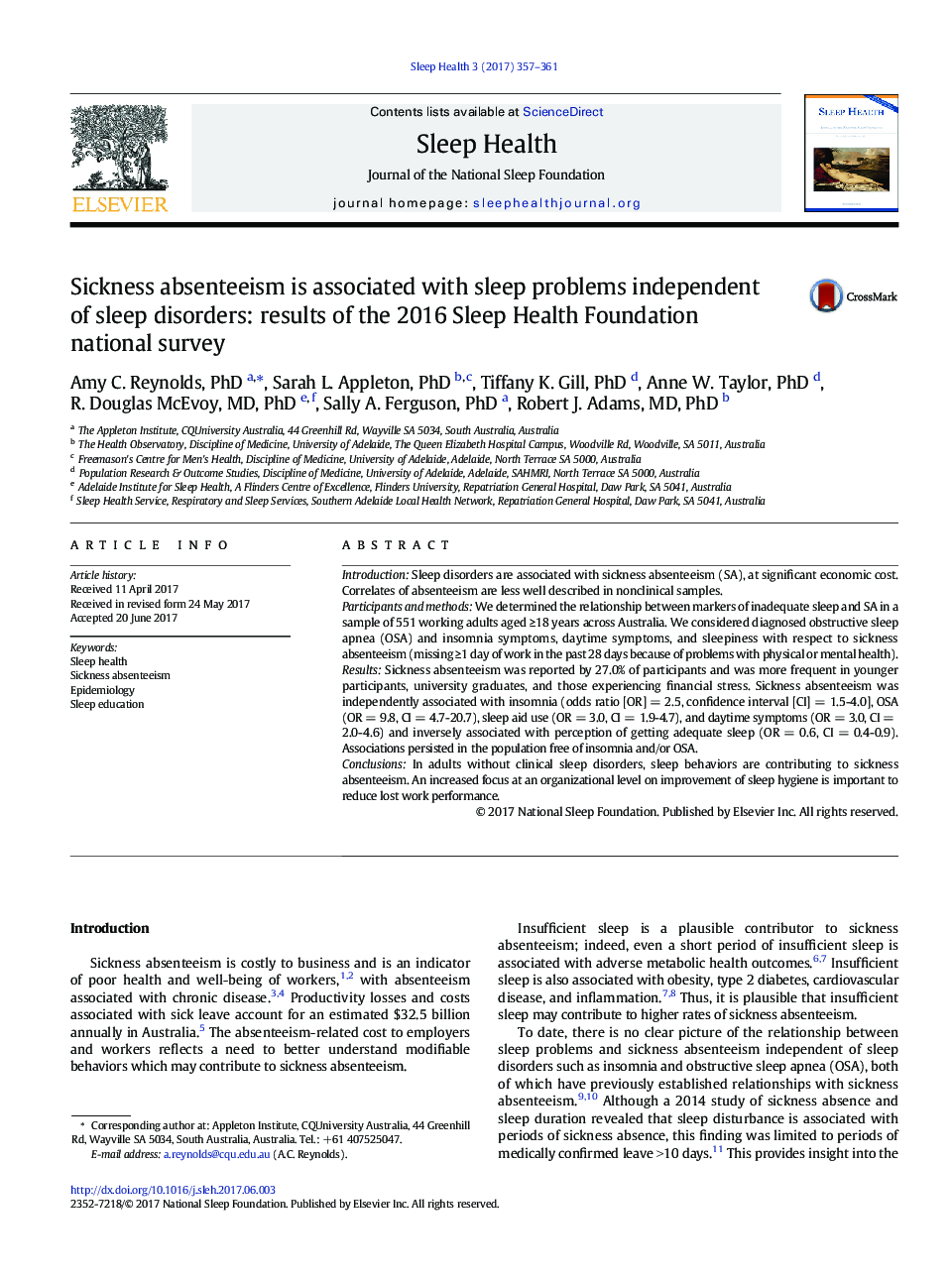| Article ID | Journal | Published Year | Pages | File Type |
|---|---|---|---|---|
| 5039491 | Sleep Health | 2017 | 5 Pages |
IntroductionSleep disorders are associated with sickness absenteeism (SA), at significant economic cost. Correlates of absenteeism are less well described in nonclinical samples.Participants and methodsWe determined the relationship between markers of inadequate sleep and SA in a sample of 551 working adults aged â¥18 years across Australia. We considered diagnosed obstructive sleep apnea (OSA) and insomnia symptoms, daytime symptoms, and sleepiness with respect to sickness absenteeism (missing â¥1 day of work in the past 28 days because of problems with physical or mental health).ResultsSickness absenteeism was reported by 27.0% of participants and was more frequent in younger participants, university graduates, and those experiencing financial stress. Sickness absenteeism was independently associated with insomnia (odds ratio [OR] = 2.5, confidence interval [CI] = 1.5-4.0], OSA (OR = 9.8, CI = 4.7-20.7), sleep aid use (OR = 3.0, CI = 1.9-4.7), and daytime symptoms (OR = 3.0, CI = 2.0-4.6) and inversely associated with perception of getting adequate sleep (OR = 0.6, CI = 0.4-0.9). Associations persisted in the population free of insomnia and/or OSA.ConclusionsIn adults without clinical sleep disorders, sleep behaviors are contributing to sickness absenteeism. An increased focus at an organizational level on improvement of sleep hygiene is important to reduce lost work performance.
